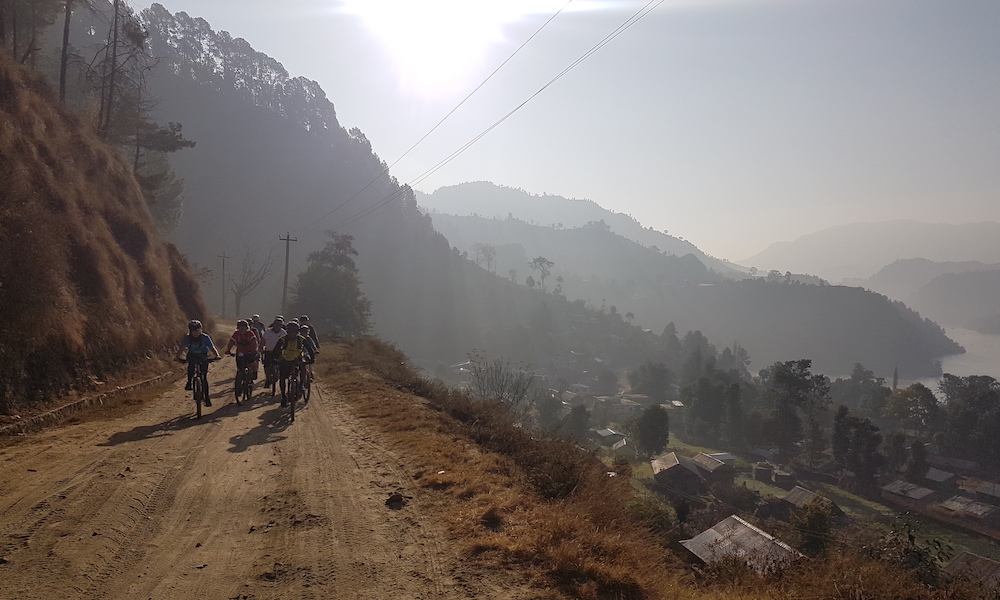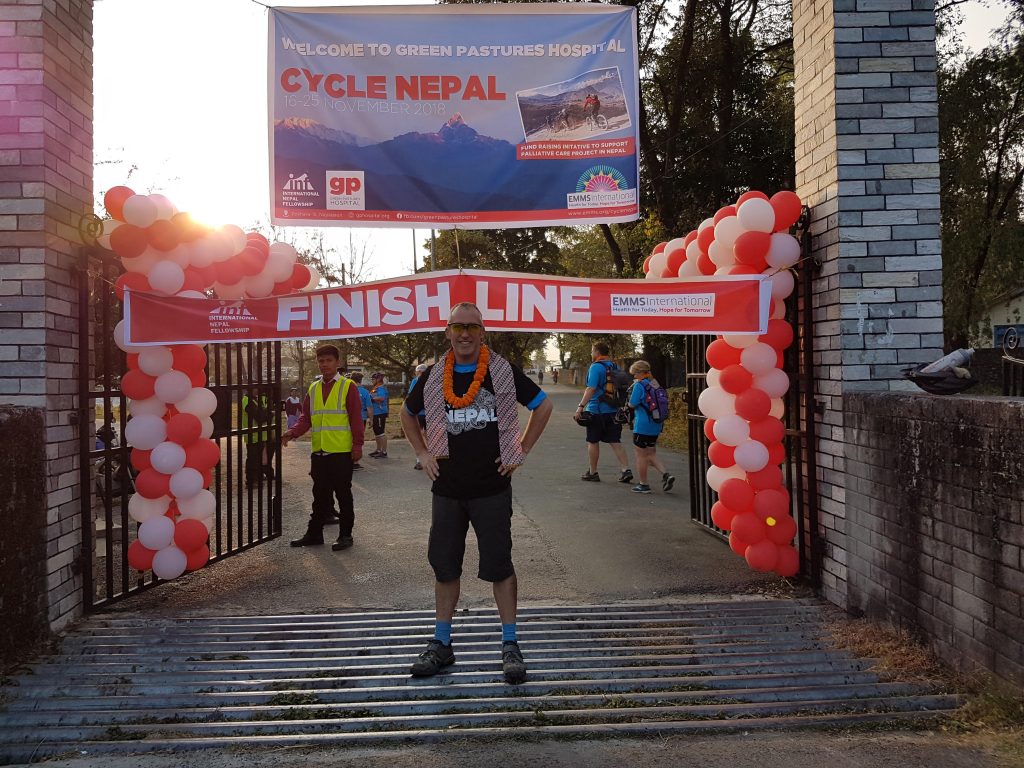In November, Troy Post cycled from Kathmandu to Pokhara as part of ‘Cycle Nepal,’ raising over $6,200 for a new palliative care facility at INF’s Green Pastures Hospital. Organised by EMMS International, the ride took a total of six days and was over 350km long!
Nepal’s mountainous landscape made for a challenging but enjoyable ride, with plenty of climbs as well thrilling descents. The most challenging day was a 90km ride that Troy describes as “what goes up must come down.” The team climbed a total of 1500m, pushing themselves to reach Simbhanjyang Pass at 2488m above sea level. They were rewarded with what Troy describes as “an ear-grinning ride descent of more than 2000m over 40km… including over 70 switchback corners.”
Troy and the team had heaps of fun exploring Nepal by bike, with their route taking them through small villages, past Buddhist monasteries, and through the famous Chitwan National Park. Chitwan is home to one of the largest populations of the illusive Bengal tiger. While they didn’t spot a tiger, they did see deer, monkeys, rhinoceros and Bengal foxes! They also got up close with some wildlife, enjoying an elephant ride one morning.
Each day offered them opportunities to connect with locals, as well as different glimpses into Nepali life: from enduring jam-packed traffic and smog on some highways and spending time with their Nepali guides, to receiving warm Nepali hospitality and even witnessing the send-off to a traditional wedding.
The ride was not without its challenges. Aside from nauseating smog from traffic some days, Troy also slipped over twice on the final day after a bus had been spilling diesel fuel on the road. Damage to his bike meant he had to switch to a spare.
But it was all worth it when the team approached the finish line at Green Pastures Hospital in Pokhara. They crossed the line to the cheers and applause of spectators from the hospital, including INF staff Dr Dipak Maharjan [Medical Director] and Dr Ruth Russell [Palliative Care Specialist].
The team were delighted to discover that they had raised enough money for the palliative care facility to go ahead. There are extremely limited palliative care services available in Nepal, despite the increasing incidence of non-communicable diseases which require palliative care in the terminal stages. Dr Ruth advised the team that the new facility should see its first patients in 18-24 months. It will provide a vital service and ensure poor patients and their families can receive the compassionate care they deserve, making every pedal worth it.




